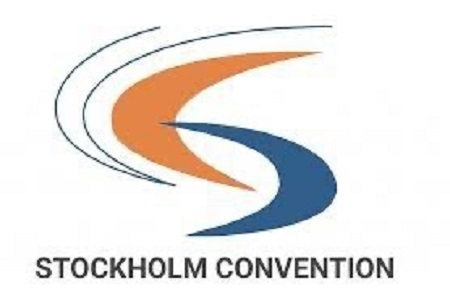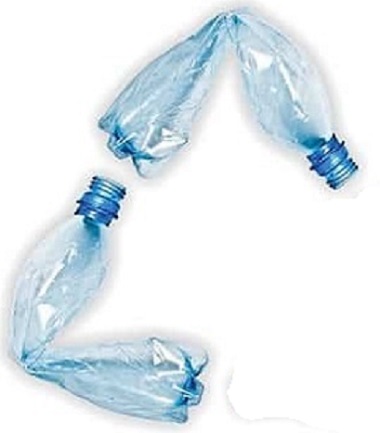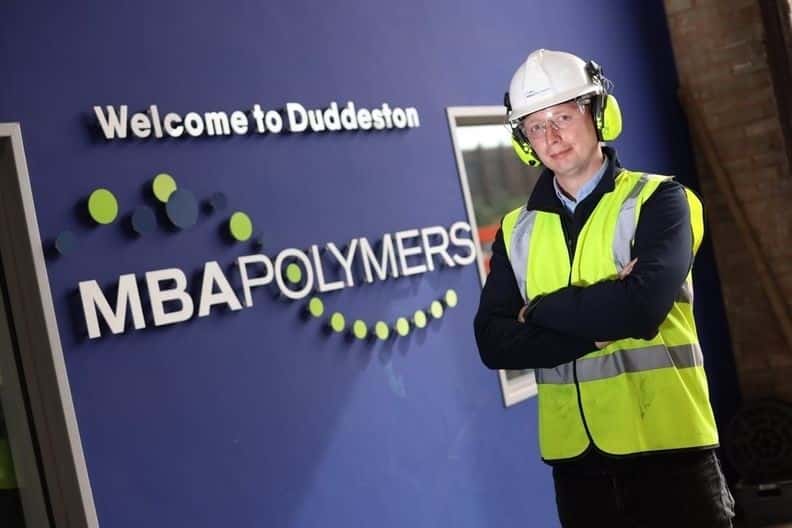Plastics-additives – PP-Resin 08-10-2022 - Arhive
Plastics-additives – PP-Resin
-New generation Luminy-based PLA filament can take the heat
ColorFabb launches Light Weight PLA high temperature 3D filament
A new generation of Luminy PLA-based filaments is now available that enables lighter parts to be printed with better resistance to high heat. Launched by colorFabb, the Light Weight (LW) PLA High-Temperature 3D print filament was jointly developed by TotalEnergies Corbion and colorFabb.
The new product will satisfy the needs of enthusiasts of Remote Control (RC) planes, who can use the filament to design and produce 3D planes that will withstand high sun temperatures.
“Good collaboration with customers is essential to develop new applications that fulfill market demand. Understanding product goals and requirements is essential to come to solutions that solve practical challenges”, said Vladislav Jašo, Application Specialist at TotalEnergies Corbion. “The openness and exchange of information were crucial to deliver results” he added.
To develop the formulation, colorFabb incorporated Luminy PLA technology to enhance the temperature resistance offered by their existing lightweight PLA 3D printing filament.
TotalEnergies Corbion Research and Development laboratories were able to optimise the new formulation to achieve high heat resistance, yet maintaining excellent 3D printability and low weight. While heat exposure still needs to be controlled, the planes do not deform quickly as the original LW-PLA.
“The new formulation exceeded our expectation during the real-world test. Within minutes the original LW-PLA printed parts started to deform, literally in front of our eyes, but the new formulation kept its shape well over time.” said Gijs Houdijk, Head of Additive Manufacturing at colorFabb. “The team of experts at TotalEnergies Corbion knew exactly what we needed and were able to speed up our R&D effort.”
∼∼∼∼∼∼∼∼∼∼∼∼∼∼∼∼∼∼∼∼
∼∼∼∼∼∼∼∼∼∼∼∼∼∼∼∼∼∼∼∼
-UN science panel pushes to eliminate two plastics additives
An expert panel of the United Nation’s Stockholm Convention voted Sept. 30 to put two plastics additives on its list of toxic chemicals that should be eliminated, although it called for phasing them out over time in some applications like automobiles.
The decision by the scientific panel, known as the Persistent Organic Pollutants Review Committee, sets up a decision in May by the full Stockholm Convention on the two additives, dechlorane plus and UV-328. The panel also expressed concerns that plastics recycling could keep the pollutants in the environment.
A statement from the panel said the two additives are heavily used in plastics, but it also said that some of the uses “require time to be phased out, such as for motor vehicles, industrial machines and in medical devices.”
The scientific panel, which is appointed by governments, said its recommendations to the full convention included “time-limited specific exemptions.”
Dechlorane plus is a flame retardant and UV-328 is an ultraviolet light stabilizer also used in coatings and personal care products and can enter the environment in other ways, including sewage sludge.
The panel’s decision drew a mixed reaction from the International Pollutants Elimination Network, which praised the listing but criticized the exemptions and said they would harm human health and the environment, including because they will continue to be part of recycled plastics.
“It is great to see that two toxic plastic additives are being recommended for listing,” said Therese Karlsson, IPEN science and technical advisor. “This highlights that substantial efforts are urgently needed to phase out toxic chemicals used in plastics. It is however deeply concerning that the committee is recommending that some uses for the two chemicals will be allowed to continue for decades.”
IPEN compared the exemptions for continued use in cars, aircraft and other equipment to previous decisions to give broad exemptions for some brominated flame retardants, which it said has led to “widespread and ongoing pollution of recycled plastics.”
IPEN said the scientific panel called for separating out waste plastics with the additives so they are not recycled into new products.
A summary of the discussion around UV-328 posted on a UN-linked website said panel members argued that recycling of plastics with the additive had a high potential of reintroducing it back into the environment.
An aerospace industry group told a meeting of that panel that there were still a few critical uses of the chemical, and said industry was looking for alternatives.

-Leadership changes at Carbios
New team will drive commercialisation of Carbios’ technology
Carbios, a pioneer in the development of enzymatic recycling has announced a number of new additions to its management staff.
The new hires are tasked with launching and building out the market commercialisation of the enzymatic technologies developed by Carbios that enable PET to be broken down back into its constituent monomers and subsequently repolymerised into virgin-quality PET material.
Carbios has appointed Stéphane Ferreira as the Director of Operations, who is in charge of the business’ global development and who will manage the relationship with the various industrial and commercial partners. His team has now also been expanded by the addition of two new members: Frédéric Alarcon, who joined Carbios on 5 September as the Licencing manager will focus on building and deploying the process licensing model that is at the heart of Carbios’ business model; and Arnaud Tillon, the new Group Marketing Director, who joined the firm on 12 September.
Tillon is responsible for defining and deploying the company’s marketing strategy, in order to achieve its marketing objectives. He is also in charge of reinforcing the organisation’s customer culture.
In further news, Martin Stephan is stepping down from his role as Deputy CEO on 15 October, 2022, after nearly six years at Carbios.
Stephane Ferreira has over 20 years of experience in the specialty chemicals sector. Prior to joining Carbios, he was the Vice-President of Transformation for Arkema’s Coatings’ business unit. He has successfully led major transformations thanks to his leadership and customer focus, developing the culture, processes and strategic partnerships required for business growth.
New Licensing Manager Frédéric Alarcon has held various managing positions in R&D, technology, business development, manufacturing and customer technical support at BP Chemicals, Ineos and more recently, Sibur.
Arnaud Tillon, the newly appointed Group Marketing Director, has served in various marketing and communication roles at companies including and Sales Direction at Nestlé Waters, the Publicis Group and IKKS, the French fashion group, where he was in charge of the international brand expansion.
Carbios is currently running a demonstration plant for its PET bio-recycling technology in Clermont-Ferrand. The company also announced a partnership in February of the year with Thai PET giant Indorama. The companies aim to build and operate in France the world’s first industrial-scale enzymatic PET bio-recycling plant, with a processing capacity of some 50.000 tons of post-consumer PET waste per year, equivalent to 2 billion PET bottles or 2.5 billion PET trays.

-Resin Price Report: PP Resin Prices Drop for Seventh Straight Week
Polypropylene (PP) producers ramped up production in July and August, growing inventories to near-record levels just as new production capacity came online in Canada.
Completed volumes of spot resin trading tallied slightly below average last week as buyers and sellers closed out September, reports the PlasticsExchange in its Market Update.
The slower trading activity came as market participants monitored Hurricane Ian’s impact on Florida, far removed from the Gulf Coast’s petrochemical infrastructure. Hurricane season officially ends on November 30, leaving enough time for another major storm to hit vulnerable production. New storms are brewing in the Atlantic, but nothing that will threaten Gulf production in the next week or so.
Mixed resin price direction
The somewhat limited trade flow also came with mixed price direction, as polyethylene (PE) held steady for a fifth consecutive week while polypropylene (PP) dropped yet again for a seventh straight week. Just a few fresh Prime PE domestic railcars were offered and most PE export offers had already dried up for the month. PP offers continued to come amid a heavy flow of off-grade railcars. Producers were eager to drop spot Prime prices as they sought to line out their fourth quarter reactor time.
This clear disconnect between PE and PP pricing highlights a fundamental difference in producer efforts to manage the still over-supplied situation, according to the PlasticsExchange. “We have seen PE producers restrict production while leaning heavily on the export market to trim down inventories from record levels,” writes the Chicago-based resin clearinghouse in its report. “To a certain extent they have been successful in reducing their resin stocks and stemming the slide in already well-discounted spot pricing, even as contracts still come down. On the other hand, PP producers actually ramped up production in July and August, growing inventories to near-record levels just as new production capacity had started in Canada.”
∼∼∼∼∼∼∼∼∼∼∼∼∼∼∼∼∼∼∼∼
∼∼∼∼∼∼∼∼∼∼∼∼∼∼∼∼∼∼∼∼
-Price declines gather pace on much lower demand
R-PET is the only exception
In August, only R-PET materials registered price gains. R-PET clear food grade pellets resumed an upward trend with notations settling €50/tonne above the previous month. R-PET clear flake and R-PET coloured flake grades gained around €20/tonne over the same period.
Several other recycled plastics segments posted lower prices in August. R-HDPE black injection moulding pellet prices fell €20/tonne, R-LDPE prices fell between €15-40/tonne and R-PP prices were down €20-50/tonne. R-HDPE coloured blow moulding pellets and R-HIPS prices, on the other hand, remained unchanged compared to the previous month.
The price softening trend in August was generally the result of slowing demand, especially from the construction sector. Meanwhile, base material supply remained overall at a satisfactory level.
In September, a more pronounced price decline is taking shape. Significantly lower demand as consumer feel the pinch from a squeeze on their purchasing power, and a steeper decline in base material prices, is exerting downward pressure on recycled plastics prices.
The R-PET segment, once again, is the only exception, with further price increases occurring. Here, demand is supported by the sustainability programs of consumer goods manufacturers and the tight availability of virgin PET material.
Recycled polyethylene terephthalate (R-PET)
In August, clear bottle scrap prices actually fell slightly, yet R-PET clear food grade pellet prices resumed their upward trend, rising by €50/tonne on improved demand. R-PET clear flake and R-PET coloured flake prices each increased by €20/tonne.
Demand for all R-PET grades was boosted by the supply shortages for virgin PET. On the supply side, bottle scrap availability has continued to improve during the summer.
In September, R-PET prices are expected to buck the downward price trend, at least temporarily. Prices are likely to show small gains, but there is little scope to further significant price increases over the next few months. Low availability and good demand point to coloured flake prices rising at a slightly faster rate compared to clear flake and clear food-grade pellets.
Recycled low-density polyethylene (R-LDPE)
In August, R-LDPE prices declined within a range of €10-35/tonne with base material prices down significantly. Recyclers struggled to pass on the higher cost of energy and had to accept minor price concessions.
R-LDPE availability remained sufficient to meet demand despite a reduction in supply of base material. While demand eased slightly in August, it remained well in line with normal seasonal expectations.
A decline in primary LDPE material prices is expected to herald a reduction in demand for the secondary market as some processors switch from recyclate to virgin polymers.
Recycled high-density polyethylene (R-HDPE)
In August, R-HDPE blow moulding pellet prices were settled on a rollover basis, while R-HDPE injection moulding pellet prices dropped by around €20/tonne due to slightly weakening demand.
R-HDPE injection moulding demand was adversely affected by continuing weakness in the automotive sector and a slight easing in demand from the E&E industry. Base material was sufficiently available to meet the contractual obligations from recyclers.
September is likely to see a sharp downturn in R-HDPE prices despite rising energy costs. The economic downturn and declining purchasing power is putting pressure on demand for consumer goods. This is likely to adversely impact demands for recycled R-HDPE.
Recycled polypropylene (R-PP)
Lower demand and a reduction in virgin polymer prices led to a reduction in R-PP homopolymer prices of €30/tonne and a reduction in R–PP copolymer prices by €50/tonne in August.
The automotive sector continues to be a drag on R-PP demand with producers sitting on high stock levels. There was also more than sufficient base material to meet demand.
Lower virgin material prices and a demand downturn will see R-PP prices declining further in September.
Recycled high-impact polystyrene (R-HIPS)
In August, R-HIPS prices remained unchanged from the previous month on slightly weakening demand. There was a sufficient supply of virgin material available.

-MBA grows network of recycling facilities with opening 3rd UK site
New site advances ‘closed loop’ supply chain for post-production plastics
Recycling company MBA Polymers UK has announced it is opening a third UK site, this time in Duddeston, Birmingham. The development of the Duddeston site is the latest step in the company’s efforts to create a nationwide network of facilities which can collect more plastic. MBA’s main source of input plastic waste is from Waste Electonics and Electrical Equipment (WEEE), Automotive Shedder Residue (ASR) and post-industrial production.
Even without the new facility, MBA Polymers UK already recycles more plastic per end-of-life vehicle than any other company in the world.
Adding the capacity of the new facility will enable it to recycle more plastics from the manufacture of new vehicles than any other global recycler. Its recycled plastic is the first to achieve the Carbon Trust’s Lower CO2 Certification with its products offering a reduction of between 75% and 86% compared to virgin equivalents, according to an independent Life Cycle Assessment (LCA).
As part of its ambitious growth strategy, MBA Polymers has a target to produce 100,000 tonnes of recycled plastic by 2030, with Duddeston set to provide between 13,000 and 15,000 tonnes of this goal.
MBA Polymers UK – part of EMR, a global leader in sustainable materials – treats and recycles all of the material it processes within the UK, offering transparency and traceability to the companies it works with. It offers manufacturers- car makers, electronics firms and others – the opportunity to join a closed loop supply chain: their post-production waste is recycled by MBA Polymers, after which they can ‘buy back’ sustainable recycled plastics with very significant carbon savings.
“The location of this new site will also reduce the transportation required to achieve this,” said Paul Mayhew, general manager at MBA Polymers UK.
The new £400,000 site joins MBA Polymers UK’s original facility in Worksop, Nottinghamshire, and a separation line in Dover, which was acquired in 2019. The arrival of a third site will increase the efficiency of its processes and reduce the unnecessary, carbon intensive transportation of material.
“The arrival of our business – and its innovative recycling processes – to the heart of Birmingham is the next exciting chapter in the MBA Polymers UK story,” said Mayhew.

-Plastic-Gobbling Enzymes in Worm Spit May Help Ease Pollution
Enzymes found in the saliva of wax worms can degrade one of the most common forms of plastic waste, according to research published Tuesday that could open up new ways of dealing with plastic pollution.
Humans produce some 400 million metric tons of plastic waste each year despite international drives to reduce single-use plastics and to increase recycling.
Around a third is polyethylene, a tough plastic thanks to its structure, which traditionally requires heating or radiation before it starts to break down.
There have been several studies showing that microorganisms can release enzymes that start the degradation process on polyethylene, but the process has until now taken months each time.
But the enzymes contained in the saliva of the wax worm moth (Galleria mellonella) can act in only a few hours, Tuesday’s research showed.
Researcher Federica Bertocchini, an avid beekeeper, said she originally stumbled on the idea that this small caterpillar had unusual powers when storing honeycombs a few years ago.
“At the end of the season, usually beekeepers put some empty beehives in a storage room, to put them back in the field in the spring,” she told AFP.
“One year I did that, and I found my stored honeycombs plagued with wax worms. In fact, that is their habitat.”
Bertocchini cleaned the honeycombs and put the worms in a plastic bag.
When she returned a short time later, she found the bag “riddled with holes.”
“That raised the question: Is it the result of munching, or is there a chemical modification? We checked that, doing proper lab experiments, and we found that the polyethylene had been oxidized,” she said.
In her latest research, Bertocchini, from Madrid’s Margarita Salas Centre for Biological Studies (CIB) and her colleagues analyzed proteins in the wax worm saliva and identified two enzymes that could break polyethylene down into small polymers in only a few hours at room temperature.
Writing in the journal Nature Communications they explained how they used another worm’s saliva as a control experiment, which produced no degradation compared with the wax worm.
Bertocchini said her team is still trying to figure out precisely how the worms degraded the plastic.
While the study authors stressed that much more research was needed before Tuesday’s findings could be implemented at any meaningful scale, there were a number of possible applications.
∼∼∼∼∼∼∼∼∼∼∼∼∼∼∼∼∼∼∼∼
∼∼∼∼∼∼∼∼∼∼∼∼∼∼∼∼∼∼∼∼
-Ineos Styrolution launches bio-attributed ABS resins
Ineos Styrolution has developed what officials claim are the world’s first fully bio-attributed ABS resins.
The new ECO B line is part of Ineos Styrolution’s Terluran-brand ABS portfolio. Officials with Ineos Styrolution in Frankfurt, Germany, said in a news release that the new grades complement previous mechanically recycled Terluran ECO materials.
Officials described the new ABS grades as “the final jigsaw piece” in Ineos Styrolution’s polystyrene and ABS portfolio, which now consists of mechanically recycled and bio-attributed solutions for all three of the firm’s products lines.
The new ECO B grades are based on renewable feedstock according to an ISCC-certified mass balance approach. The new feedstock can be used as a replacement for conventional feedstock for all three components in ABS, acrylonitrile, butadiene and styrene monomer.
Officials said this approach allows maximises the renewable feedstock in the material while minimising the CO2 footprint. One of the new grades contains bio-attributed content from styrene monomer from renewable sources. The other new grade contains a complete bio-attributed solution with bio-attributed content from all three monomers.
Terluran is used in a broad range of applications, including automotive, household, electronics, construction and toys, sports & leisure.
“This new bio-attributed standard ABS rounds up our range of sustainable Terluran solutions,” ABS Product Director Yohann Bach said. “I expect it to be particularly interesting for customers with very ambitious sustainability goals minimising their ecological footprint while not compromising on performance.”
Officials added that all of Ineos Styrolution’s bio-attributed products have identical physical and mechanical properties as their counterparts based on conventional feedstock.
∼∼∼∼∼∼∼∼∼∼∼∼∼∼∼∼∼∼∼∼
∼∼∼∼∼∼∼∼∼∼∼∼∼∼∼∼∼∼∼∼
